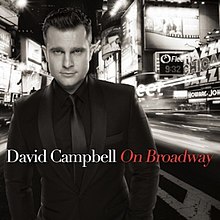규칙 공리주의
Rule utilitarianism| 다음에 대한 시리즈 일부 |
| 공리주의 |
|---|
| 철학포털 |
규칙 공리주의는 어떤 행동이 가장 큰 선으로 이어지는 규칙에 부합하는 만큼 옳다고 말하는 공리주의의 한 형태 또는 "특정 행동의 옳고 그름은 그것이 본보기인 규칙의 정확성의 함수"[1]이다. 철학자 리처드 브랜트와 브래드 후커는 그러한 접근법의 주요 지지자들이다.
규칙 실용주의자의 경우 규칙의 정확성은 규칙을 따를 때 가져오는 선의 양에 따라 결정된다. 이와는 대조적으로, 행위 공리학자들은 행위가 예시였던 규칙(예: "항상 적색 신호에서 정지")을 충실히 지켰는지를 판단하기보다는 그 행위만으로 (예: 적색 신호에서 정지) 결과를 판단한다. 규칙 실용주의자들은 비록 더 나은 결과가 증명될 수 있더라도, 가장 큰 선을 초래하는 경향이 있는 규칙을 따르는 것이 개별적인 경우에 예외를 허용하는 것보다 전반적으로 더 나은 결과를 가져올 것이라고 주장한다.
밀의 제형
존 스튜어트 밀은 1863년 저서 '공리주의'에서 효용 측면에서 권리의 개념을 옹호한다. "그렇다면, 나는 권리를 갖는 것이 사회가 나를 보호해야 할 무언가를 갖는 것이라고 생각한다. 반대자가 계속 묻는다면, 왜 그래야 하는가? 일반 효용 외에 다른 이유는 줄 수 없다고 말했다.[2] 밀이 공리주의적인 규칙이었는지는 논쟁의 여지가 있다.[3] 공리주의의 이 구절은 그가 다음과 같은 사람이었음을 시사하는 것 같다.
실제로 금욕의 경우(특정 사례의 결과가 유익할 수 있지만)는 사람들이 도덕적 고려에서 금기를 하는 경우, 일반적으로 실행된다면 일반적으로 해로울 수 있는 종류의 행동이라는 것을 의식적으로 인식하지 않는 것은 지적 대리인이 할 가치가 없을 것이다. 기권할 의무가 있다는 이유
그러나 밀은 또한 일반 윤리적 규칙을 위반하는 것이 때로는 옳다고 주장한다.
... 정의는 특정 도덕적 요구 사항의 명칭으로, 집합적으로 볼 때 사회적 효용성이 더 높으며, 따라서 다른 어떤 것보다도 더 중요한 의무다. 비록 정의의 일반적인 격언 중 하나를 지배할 정도로, 일부 다른 사회적 의무가 매우 중요한 특정한 경우가 발생할 수 있지만 말이다. 따라서 생명을 구하기 위해서는 단순히 허용될 뿐만 아니라 의무, 필요한 음식이나 약물을 훔치거나 강제로 빼앗거나 유괴하고 주례를 강요할 수도 있다.[2]
평등한 다른 것들은 그들의 사회가 규칙을 따른다면 더 행복해서 사람들은 주어진 상황에서 다른 사람들에게 어떤 종류의 행동을 기대할 수 있는지 알 수 있다.[citation needed] 따라서, 공리학자들은 "규칙을 어기는 강력한 이유가 없는 한 규칙을 지키라"는 제도를 정당화할 수 있다.
강력한 지배 공리주의
강력한 규칙 공리주의(SRU)는 도덕적 규칙이 모든 장소와 시간에 복종해야 한다는 주장에 대해 공리주의적인 설명을 한다. SRU는 약한 규칙 공리주의와 같은 행동 공리주의로 악화되지 않지만, 유사한 절대주의적인 도덕적 자세(불가결한, 신학적 자세)와 약점을 공유한다. 이 문제를 명확히 하기 위해 사용된 시나리오(또는 사고 실험)는 두 가지 모두 성립한다(흔히 임마누엘 칸트에게 기인한다.
- you know the location of some persons
- a murderer asks you about their location in order to go and kill them.
The moral convention is that lying is wrong, so the strong rule utilitarian says you should reveal their location. A more sophisticated SRU response is that
- the above scenario is very improbable.
- in the majority of situations, telling the truth leads to more trust and happiness.
- if applied universally (à la Kant's categorical imperative), the rule against lying would create net utility. This position is most notably argued by John C. Harsanyi (in an essay included in "Utilitarianism and beyond", edited by A. Sen and B. Williams, Reprint 2010).
Nevertheless, many disagree, claiming that (in this situation) telling the truth would result in needless death, would therefore be immoral, and that this scenario thus provides a counterexample contradicting SRU.
Weak rule utilitarianism
Weak rule utilitarianism (WRU) attempts to handle SRU counterexamples as legitimate exceptions. One such response is two-level utilitarianism; more systematic WRUs attempt to create sub-rules to handle the exceptions. But as David Lyons[4] and others have argued, this will necessarily tend to collapse into act utilitarianism. Rules will require as many sub-rules as there are exceptions, thus many exceptions will make the more-sophisticated rule computationally intractable. Rational agents will then satisfice that intractability by seeking outcomes that produce the maximum utility.[5]
See also
- Act utilitarianism
- Brad Hooker
- Guideline
- Harm principle
- Prima facie right
- Proportionalism
- Richard Brandt
- Rule egoism
- Thought experiments in ethics
References
- ^ Garner, Richard T.; Bernard Rosen (1967). Moral Philosophy: A Systematic Introduction to Normative Ethics and Meta-ethics. New York: Macmillan. p. 70. ISBN 0-02-340580-5.
- ^ a b Mill, John Stuart (1861). Utilitarianism.
- ^ Hooker, Brad (2003-12-31). "Rule Consequentialism". Stanford Encyclopedia of Philosophy. Archived from the original on 2007-06-09. Retrieved 2007-03-11.
- ^ Forms and Limits of Utilitarianism, 1965.
- ^ Allen Habib (2008), "Promises", in the Stanford Encyclopedia of Philosophy.
Further reading
- Brad Hooker's entry on rule consequentialism in the Stanford Encyclopedia of Philosophy: [1]
- Brad Hooker, Ideal Code, Real World Oxford University Press, 2000, new edition 2002
- Foundations of Morality at the Mises Institute Hazlitt, Henry (1964). The Foundations of Morality. Irvington-on-Hudson,NY: Foundation for Economic Education.
- Smart, J. J. C (October 1955). Extreme and Restricted Utilitarianism (Speech). The Victorian Branch of the Australasian Association of Psychology and Philosophy.


